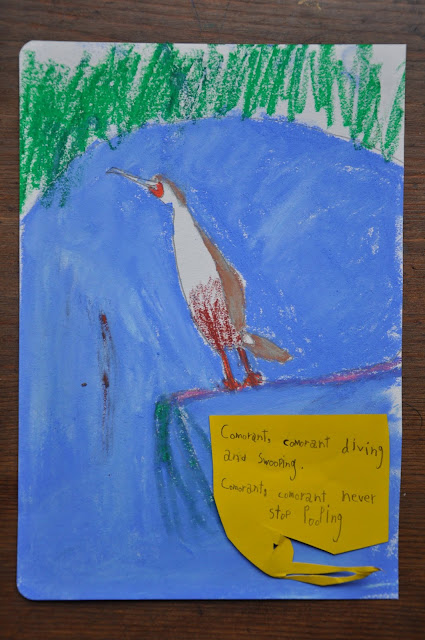Sci Fri: Case of the Cormorants
"Cormorant Cormorant, diving and swooping.
Cormorant, cormorant never stop pooping."
~Miss O
"Today I saw 13 dead cormorants.
They are double-crested cormorants.
Their feet, neck and head were orange."
~Miss C
We chanced upon a small flock of juvenile double-crested cormorants in the forest; thirteen dead in total.
An interesting opportunity to play Citizen Scientists and determine why they died and the story of how they ended up in the leaves.
Based on the fact that they live close to water for the convenience of food supply (mainly fish) it was a little odd they were in the forest. We guessed that the forest provided a 'dumping' spot.
We've been back to observe them several days since and seen no change.
Apparently they are not good eating in the food chain.
Based on the fact that they live close to water for the convenience of food supply (mainly fish) it was a little odd they were in the forest. We guessed that the forest provided a 'dumping' spot.
We've been back to observe them several days since and seen no change.
Apparently they are not good eating in the food chain.
We also did some research online and learned that Canada is struggling with cormorants destroying the environment.
Me: "What should we do about animals that
harm the environment?"
Mr. M: "Put them in cages."
Miss O: "Transport them somewhere else."
Me: "What about humans that harm the environment?"
This brought up some intense discussions about animals, humans included.
Ping
Ping is a story about a duck on the Yangtze River in China.
When he stays behind from his boat and master one evening, he learns about life on the river. Life of the Cormorants are mentioned, as Chinese traditionally use cormorants to fish. By placing a ring around their necks and a chain to their leg, it allows the 'fisherman' to retrieve their catch before they are able to swallow.


